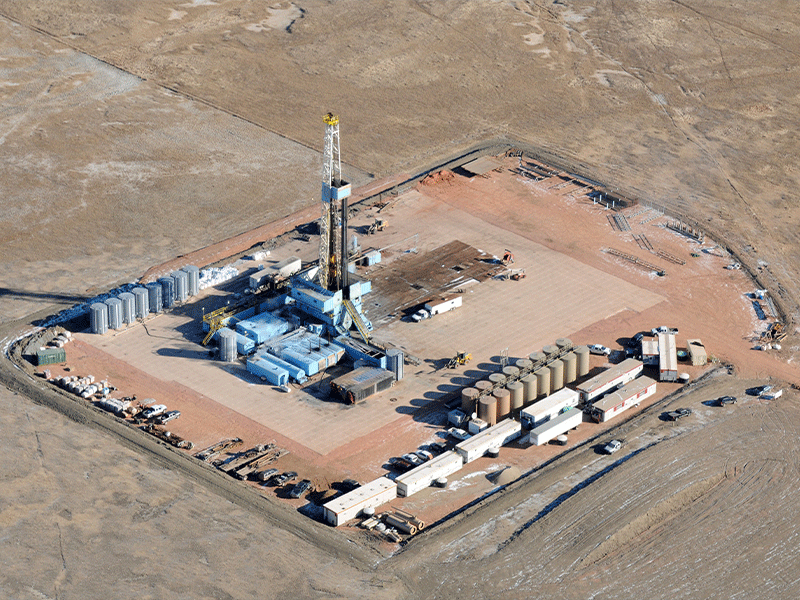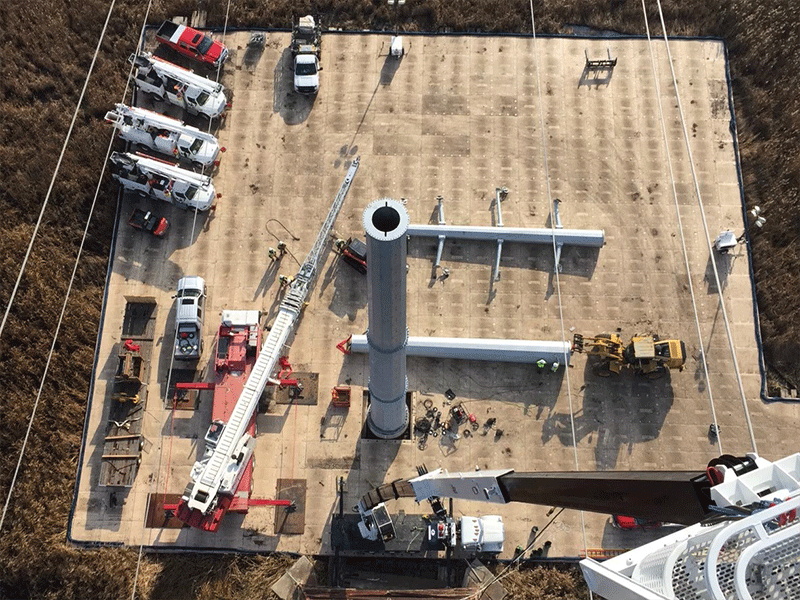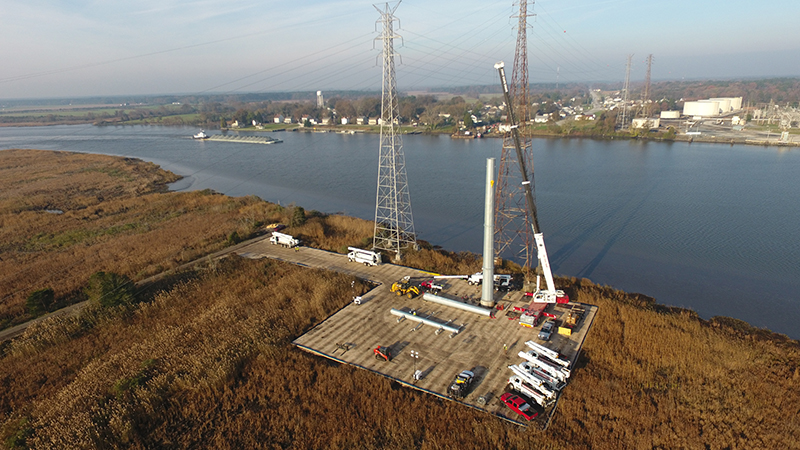5 min read

Job sites face enough challenges, including weather delays, labor shortages, and continuously changing environmental and safety requirements. Safe and stable site access shouldn’t be one of the challenges. Temporary roadways made from composite mats are becoming increasingly popular across many industries and beyond because of their efficiency and durability.
Work sites often require a reliable and robust solution to provide access to heavy equipment and vehicles while minimizing environmental impact. Luckily, composite mats offer a sustainable and efficient alternative.
How can composite mats serve as temporary roadways?
There are several benefits to using composite mats for temporary roadways, including:
- Durability and longer-term use
- Weather resistance and usability in diverse climates
- Chemical resistance and not easy to degrade or damage
- A lightweight option compared to wood mats, which makes them easier to transport and store
- Environmentally friendly with a longer lifespan than alternative materials
Common Applications for Composite Mats
Made from a proprietary blend of high-density polyethylene (HDPE), composite mats have a wide range of applications, including:
- Accessways over extremely soft ground
- Temporary roadways for long-term projects
- Staging sites, working platforms, laydown yards
- Ground protection for sensitive areas
- Protection of prepared subgrade
- Environmental and disaster relief flexibility
- Military operations flooring

1. Using Composite Mats for Oil and Gas Exploration
The oil and gas industry frequently requires temporary roadways to access remote sites. Composite mats are an ideal choice for such applications because the mats are lightweight yet incredibly strong, capable of supporting heavy loads and resisting environmental stresses. When navigating through muddy terrain or crossing sensitive ecosystems, composite mats provide a stable and durable surface for temporary roadways, ensuring safe and efficient operations in the oil and gas industry.2. Composite Mats for Construction Sites
Construction projects often require temporary roadways to facilitate the transportation of materials and heavy machinery. In such scenarios, composite mats offer significant advantages. Their interlocking design ensures quick installation, while the non-slip surface provides traction for vehicles and equipment. Plus, composite mats distribute weight evenly, minimizing damage to the underlying soil and reducing the need for extensive site restoration once the project is complete.
Managing your project expenses can be challenging, but with all the benefits of using composite mats, they can provide considerable value and help teams stay within the projected budget. Signature Systems’ composite mats can be reused for over ten years on multiple projects, making them an excellent investment. Plus, 50% more MegaDeck HD+ composite mats can be transported on trucks compared to 3-ply bolted mats, which leads to cost savings when transferring them between job sites.
Because adaptability is critical when managing a job site, composite mats offer the flexibility needed to pivot plans as project requirements change. These mats can be assembled in multiple directions to create large work areas, passing lanes, and various platform and temporary roadway configurations. Unlike wood mats, composite mats will not rot, degrade, or warp, allowing for long-term installations when required. Due to their flexibility and adaptability, composite mats are an efficient choice not only for construction but also for utility maintenance and transmission and distribution projects.

3. Composite Mats for Utility Maintenance and Transmission and Distribution Projects
Temporary roadways are essential for utility maintenance and repair work. Whether it's laying new power lines or conducting maintenance on existing infrastructure, composite mats prove invaluable in providing access to remote sites. Their robust design and HDPE formulation make them impervious to fluids or contaminants. This makes them the best option for harsh environments that enable efficient and safe transportation of equipment and materials, ensuring minimal disruption to the surrounding area.
Job site remediation can significantly impact the project's bottom line. Unlike other mats, composite mats won't splinter or crack under intense pressure, eliminating the risk of debris that could pollute sensitive environments.
Better yet, composite mats prevent cross-contamination between worksites, protect vegetation, and control soil compaction, reducing the time and costs associated with clean-up efforts.
Whether it's navigating through challenging terrains or crossing sensitive areas, composite mats offer the necessary support and protection for transmission and distribution projects. Using composite mats helps to carry out projects efficiently while minimizing environmental impact.
The Best Part: Composite Mats are Environmentally Friendly
Integrating sustainable practices into project sites is crucial, and choosing composite mats over wood can positively impact the environment. Signature System's environmentally friendly composite mats are reusable and help limit deforestation, conserving one of the Earth's most precious resources. At the end of each use, composite mats can be easily cleaned with soap and water, making them a greener alternative all around.
Key Takeaways:
- Efficiency and durability are crucial factors to consider. Job sites often require a reliable and robust solution to provide access to heavy equipment and vehicles while minimizing environmental impact.
- Safety should never be compromised when navigating rough terrain or accessing remote areas. Composite mats are safe and non-shifting work platforms that reduce the risk of accidents over wet, muddy, or soft ground conditions.
- Because adaptability is critical when managing a job site, composite mats offer the flexibility needed to pivot plans as project requirements change.
- Better yet, composite mats prevent cross-contamination between worksites, protect vegetation, and control soil compaction, reducing the time and costs associated with clean-up efforts.
What’s the best composite mat for the job?
Composite mats are a versatile and sustainable solution for temporary project site roadways. Their strength, durability, and ease of installation make them ideal for various applications, including oil and gas exploration, event infrastructure, construction sites, and utility maintenance. Using composite mats helps to carry out projects efficiently while minimizing environmental impact.
Our heavy-duty, medium-duty, light-duty, and trackout mat options meet the demands of all applications. Whether it's MegaDeck® HD+, SignaRoad® or DuraDeck® our team is here to assist you with selecting the safest, most efficient composite mats for your business. Contact us for a consultation with an expert to determine the best composite mat for the job.


